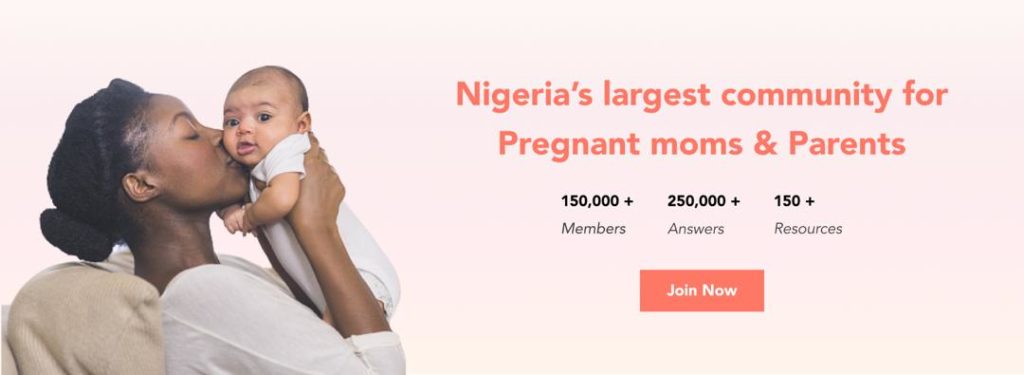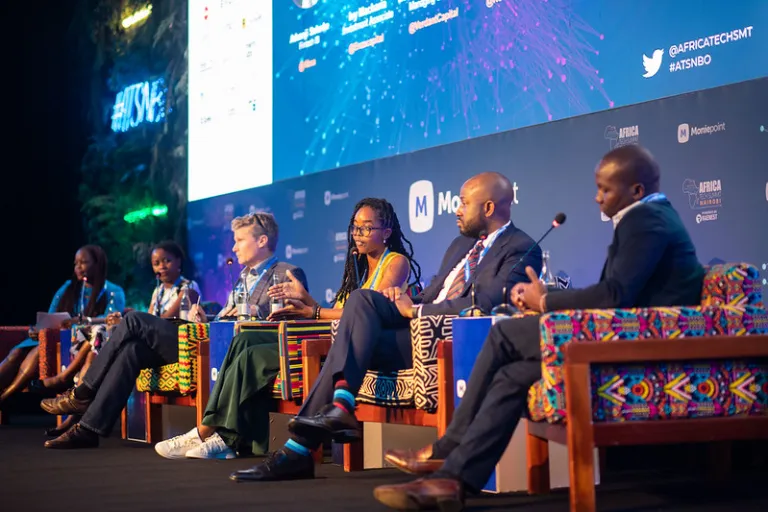Nigerian Femtech Startup, Babymigo is Reducing the Rate of Maternal Deaths Across Africa

Kemi is a co-founder of Babymigo, a Nigerian femtech firm created in 2017 with the goal of increasing access to high-quality pregnancy and parenting information.
It works by providing a digital platform via which prospective, pregnant, and nursing moms can connect with peers and specialists, as well as locate local health and social resources. Overall, it establishes an inclusive support structure for new and prospective parents in order to assist them in making educated decisions during pregnancy and motherhood.
Kemi spoke with TechCabal about Babymigo’s history, obstacles, inspiration, and future ambitions.

Babymigo’s background
Hannatu Asheolge: How did the idea of Babymigo come about?
Kemi Olawoye: As a physiotherapist, I worked at a hospital where it was my job to lead antenatal classes, which included exercise. In my interactions with the pregnant women there, I discovered that a lot of them were misinformed on maternal health issues and were also subscribed to harmful cultural beliefs. When I met my co-founder, who also worked in the health sector, we decided to do something to combat this misinformation.
HA: It’s been 4 to 5 years since your company launched, and it has accomplished a lot. As CEO and co-founder, what have your key achievements been?
KO: We’ve seen a steady increase in the number of users since our launch. Now, we have up to 250,000 users on our platform, including pregnant women and new parents. We also raised our pre-seed in this period, which led to a lot of international partnerships and recognitions. Some notable ones include the Google Black Founders Fund and the GIST Initiative by the US Department of State.
HA: What are some of your biggest challenges?
KO: There are two major challenges we’ve faced. The first one is human resources. Finding the right people who are committed to our vision of reducing maternal and child mortality rates was quite difficult, but I believe we’ve managed to get past that. We now have built a team of passionate people.
The second challenge was more about an error in our initial plan. We didn’t involve our users in our solutions, and this led to some dissonance between what we were working on and what our users actually needed us to work on.
HA: What motivates you?
KO: The statistics on child and mother mortality rates in Nigeria are my biggest motivation. Nigeria is currently one of the worst places in the world to have a child. Statistics show that 1 in 22 women that will get pregnant in Nigeria will most likely die from pregnancy-related complications due to misinformation and lack of adequate support.

The role of tech in improving maternal healthcare
HA: How big of a role do you think tech can play in improving maternal health in Nigeria?
KO: There’s a growing number of people in Africa now with access to the internet. We can leverage this internet access to spread healthy information to them. Also, providing a community with millions of other moms is a great way to counter harmful cultural beliefs around pregnancy. It’s easier to learn and believe something when there are millions of other women who are learning with you and confirming these beliefs.
HA: What singular aspect of maternal healthcare in Nigeria do you think needs the most urgent intervention?
KO: If I had to pick one, I’d say addressing the inaccurate information on these cultural beliefs.
HA: If you could describe the Nigerian femtech sector in one word, what would it be?
KO: I’d pick “underdeveloped”.
HA: What are the things you believe will accelerate the growth of the maternal health sector in Nigeria?
KO: The first thing will be to identify policies and interventions that affect outcomes in terms of maternal and child health. The second thing will be restructuring or improving our current healthcare system. About 50% of Nigerians are already living below the average income level. This means that more than half of the female population cannot afford to pay for antenatal care in a regular hospital. The government needs to provide quality healthcare for free or at affordable rates for these women in order to lower the child and maternal mortality rates.
HA: You’ve mentioned quite a number of solutions. How do we incorporate technology into these solutions? How can tech help?
KO: There can be digitising of some routine healthcare services. These can be in the form of online consultations or even digital classes which can go a long way. For a number of women, visiting a clinic is time-consuming and being able to reach a doctor online will go a long way to help women gain access to health services.

New services and future plans
HA: Babymigo recently launched the Mamacare plan. Can you tell us more about that?
KO: Mamacare is a maternity plan that allows mums to access antenatal child delivery and baby care services in about 120 multi-partner hospitals across Nigeria.
HA: What are some of the things to expect from Babymigo in the next 5 years?
KO: The plan is definitely to continue empowering more mums across Africa. In the next 3 years, we hope to provide healthcare services to 10 million mums across the African continent.
We’re also looking at geographical expansion, as maternal health issues are not peculiar to Nigeria. We’re looking at expanding to Ghana and Kenya within the next 5 years. Another thing we’re looking at is expanding our services. We hope to be able to partner with telecom service providers to provide information via SMS for mums in rural areas who do not have access to the internet.







